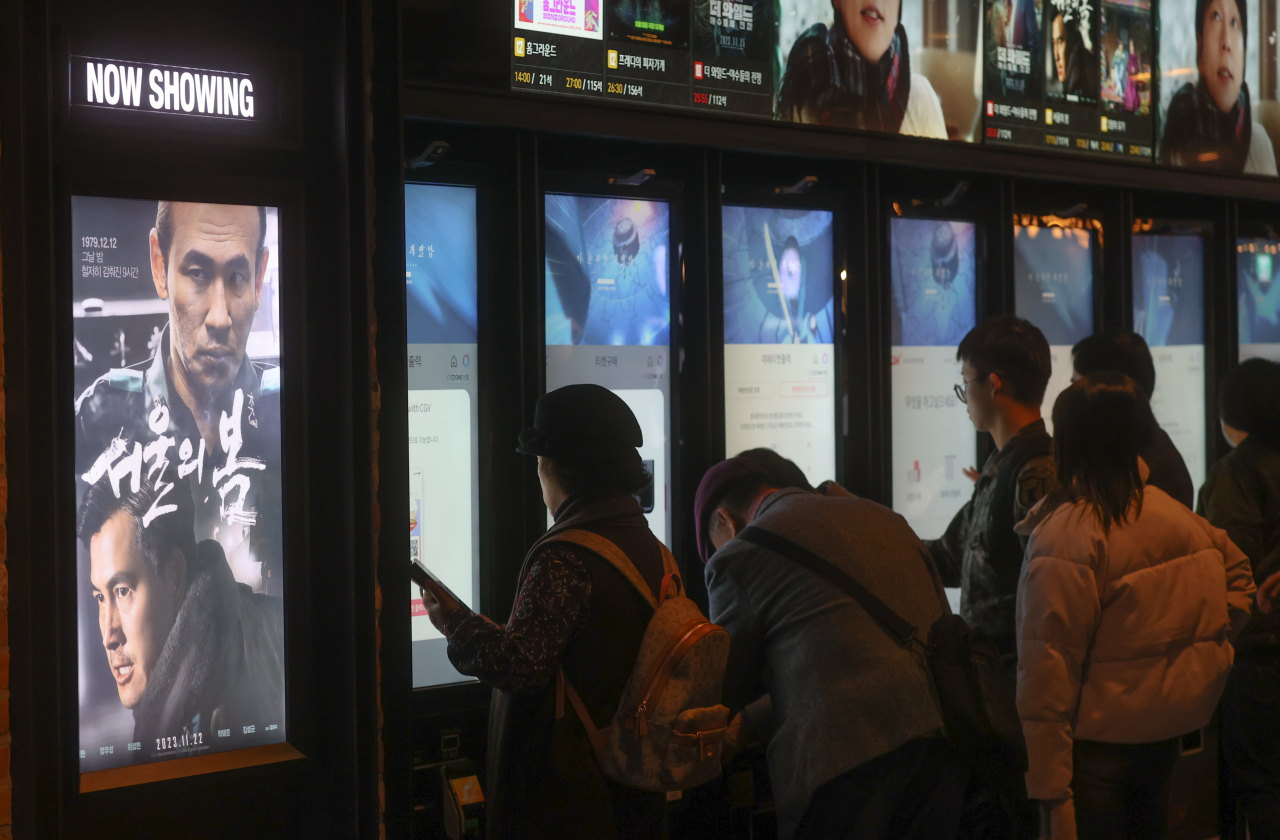Original foreign animations, budget films outshine blockbusters in 2023
Low sales for local blockbusters may continue into 2024 as more people turn to streaming platforms
By Kim Da-solPublished : Dec. 11, 2023 - 17:59

This year saw Korean cinemas slowly coming back to life from the damage of the pandemic, bringing more moviegoers to theaters than last year. However, ticket sales show that it's not blockbusters or sequels that satisfy audiences, but original storytelling and unique foreign animated and budget films.
According to Korea Film Council data, a total of 111.6 million moviegoers visited theaters from Jan. 1 to Dec. 7 this year. Considering that a total of 112.8 million people visited theaters from Jan. 1 to Dec. 31 last year, it is expected that this year would attract slightly more moviegoers compared to 2022, considering the long-running success of the historical saga flick “12.12: The Day” and the upcoming blockbuster “Noryang” slated for a Dec. 20 release.
But this year's figure, hovering around 112 million moviegoers, is still far short of the pre-pandemic level of 226.6 million in 2019. This reality may suggest that sluggish sales for local cinemas may linger into 2024.

A notable trend at theaters this year was the popularity of foreign animated films – “The First Slam Dunk” (4.76 million tickets sold) “Suzume” (5.57 million tickets sold) and “Elemental” (7.23 million tickets sold) – that topped the local box office for weeks.
Amid fierce competition and disappointing box office performances by Korean blockbusters that finally opened after pandemic-induced delays, such as "Ransomed,” “The Moon,” “Road to Boston” and “Cobweb” to name a few. Instead, films with smaller budgets were in the spotlight this year.
“30 Days,” a romantic comedy by director Nam Dae-joong, topped the box office in October, gathering some 2.16 million in ticket sales, managing to break even.
Director Jason Yu’s debut thriller “Sleep” also attracted 1.47 million moviegoers. Meanwhile, director Lee Han’s romantic comedy “Honey Sweet” attracted 1.38 million. Both films were well-received among the local audience for their originality.
Experts attributed the unexpected success of foreign animated films and local budget films this year to film producers catering to viewers' higher standards.
“It has become very difficult to see films joining the 10 million ticket sales club due to films and other things to watch that are available on streaming platforms, which means that production firms are trying to make films with low budgets and stick to more realistic plotlines rather than stories with lots of computer graphics,” entertainment critic Jung Deok-hyun told The Korea Herald.
Moviegoers have also grown increasingly critical of predictable plots and characters, and will skip watching a film in theaters altogether if it doesn't match up to the content available on various other platforms.
In addition, the fact that blockbusters almost certainly head to streaming platforms within months or even weeks of their cinematic release is another reason for their poor box-office performance.
Kim Sae-min, 27, said it has become important for her to weigh whether a movie is worth watching in the theater.
“With the cost of a movie ticket roughly equivalent to the monthly subscription fee for Netflix, I decided to wait until the film is released on Netflix. Meanwhile, I can watch other people’s reviews or YouTube movie summaries to understand the plot or raise my expectations,” Kim said, adding that she finally watched “Concrete Utopia” -- a film that was released in theaters in the summer -- on Netflix the night before.

With the increasing dominance of streaming platforms here, experts said that local streamers should also join in the race to capture a wider audience.
“There are too many streaming services, and monthly subscription fees have become a burden for many users. If Korean streaming platforms join forces, they'd be able to produce more appealing content, instead of just releasing unnecessary original content,” Jung added.



















![[Today’s K-pop] Treasure to publish magazine for debut anniversary](http://res.heraldm.com/phpwas/restmb_idxmake.php?idx=642&simg=/content/image/2024/07/26/20240726050551_0.jpg&u=)